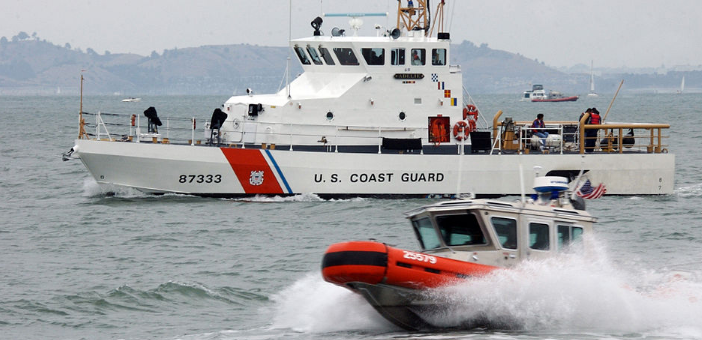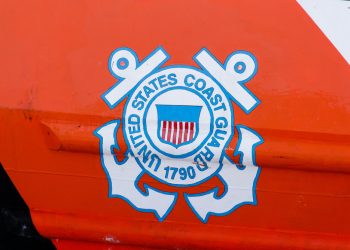The US Coast Guard received a report from a Good Samaritan of a possible entangled whale near Raritan Bay, New Jersey, on June 30. USCG arrived on the scene, remaining there to prevent vessels from getting too close to what is believed to be a humpback whale.
A boarding team from Coast Guard Station New York aboard a New York State Department of Environmental Conservation (DEC) boat first arrived on scene to obtain situational awareness. A 29-foot Response Boat-Small boatcrew from Coast Guard Station Sandy Hook and a New Jersey State Police (NJSP) vessel arrived on scene shortly after and enforced a safety zone around the whale.
[smlsubform prepend=”GET THE SAFETY4SEA IN YOUR INBOX!” showname=false emailtxt=”” emailholder=”Enter your email address” showsubmit=true submittxt=”Submit” jsthanks=false thankyou=”Thank you for subscribing to our mailing list”]
The US Coast Guard and New Jersey State Police (NJSP) remained on scene to prevent vessels from getting too close to the possible humpback whale, as NJSP reported the whale had submerged and had not been relocated after thirty minutes of searching.
NOAA Fisheries called boaters in the area to watch out for the entangled whale and follow safe viewing guidelines. Capt. Jason Tama, commander of Coast Guard Sector New York, noted.
Safeguarding our waterways and marine ecosystem is the foundation to all of the Coast Guard’s missions – this includes the marine life that inhabits the waters of New York and New Jersey. The Coast Guard will continue to monitor any reports of whales in our waters and will promptly engage with our state and federal partners, to ensure the safety of our maritime environment.
Today 6 out of the 13 great whale species are endangered, even after decades of protection. Whales are facing many dangers nowadays; and most of them are manmade. Two of the main reasons why many whale species are endangered are:
- Whaling: The hunting of whales for scientific research and their usable products like meat.
- Ship strikes: Collisions between whales and vessels.
Most reports of collisions between whales and ships involve large whales, but all species can be affected. These collisions often go unnoticed and unreported. As a result, animals can be injured or killed without no one ever noticing. Since 2009, 1,200 incidents have been registered.






























































